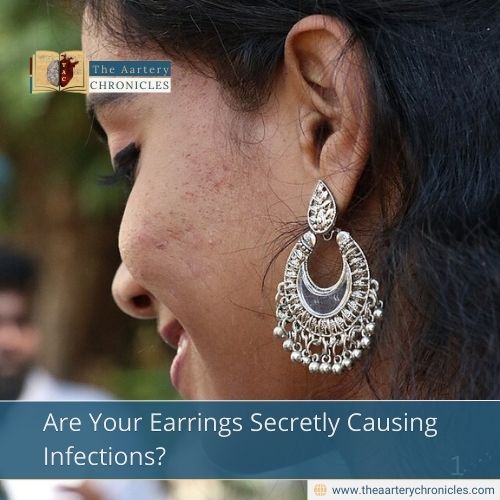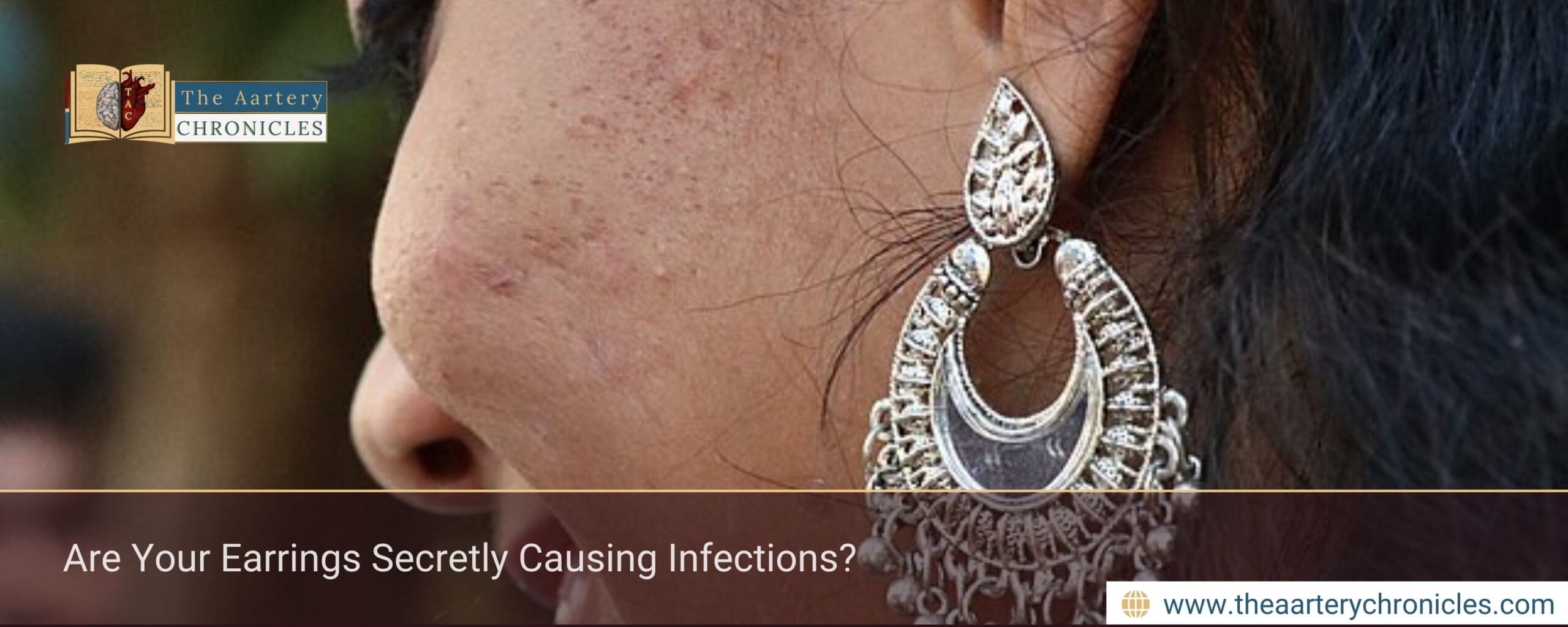

Are Your Earrings Secretly Causing Infections?
Jhumkas are more than just ornaments – they are symbols of Indian tradition, festive joy, and timeless style. Whether sparkling under city lights or glowing at a family wedding, they beautifully complete an outfit. However, wearing them without proper care can sometimes lead to problems such as irritation or even a jhumka ear infection.
The good news is that most of these issues can be avoided with awareness and simple preventive steps.
How Does a Jhumka Ear Infection Develop?
A jhumka ear infection usually occurs when bacteria, allergies, or poor cleaning practices affect the pierced area.
- Bacterial growth: Earrings can trap dust, sweat, and harmful bacteria, including Staphylococcus aureus and Pseudomonas aeruginosa. When these microbes enter the skin through a piercing, they may cause redness, swelling, and pain. Studies published by the National Center for Biotechnology Information confirm that such bacteria are frequently found on earrings and are known to trigger ear infections.
- Allergic reactions: Many imitation earrings contain nickel, a common cause of skin irritation. Prolonged exposure to nickel can weaken the skin barrier, making it easier for infections to develop.
Poor Hygiene and Ear Trouble
One of the leading reasons behind ear infections is inadequate hygiene. Touching your earrings with unwashed hands, or wearing the same pair for days without cleaning, creates a perfect environment for germs to grow. Even small amounts of dirt, sweat, or oil buildup can irritate the skin and invite infection.
Regular cleaning of both your earrings and the piercing site is essential to prevent this problem.
Piercing Technique Matters
The way your ears are pierced also plays a big role. Non-sterile instruments or improper techniques can introduce bacteria deep into the tissue. This not only delays healing but also increases the risk of painful infections. Experts such as the Mayo Clinic recommend sterile procedures and diligent aftercare to reduce such risks.
Tips to Prevent Jhumka Ear Infection
1. Keep Your Jhumkas Clean
2. Choose Safe Materials
3. Follow Piercing Aftercare
4. Rotate Your Earrings
5. Avoid Heavy Earrings for Long Hours
Warning Signs of Infection
Recognising an infection early can prevent complications. Look out for:
- Redness or swelling near the piercing
- Persistent pain or tenderness
- Pus or unusual discharge
- Itching or irritation
If these symptoms persist, consult a doctor immediately.
Conclusion
Jhumkas add elegance and cultural charm to any look, but they also require mindful care. By maintaining good hygiene, choosing quality materials, and avoiding constant wear, you can lower your risk of a jhumka ear infection. With the right precautions, your ears stay healthy and your jewellery continues to shine as beautifully as ever.
Source: Inputs from various media Sources
I’m a pharmacist with a strong background in health sciences. I hold a BSc from Delhi University and a pharmacy degree from PDM University. I write articles and daily health news while interviewing doctors to bring you the latest insights. In my free time, you’ll find me at the gym or lost in a sci-fi novel.
- Priya Bairagi
- Health News and Updates,People Forum
- 20 September 2025
- 15:00








